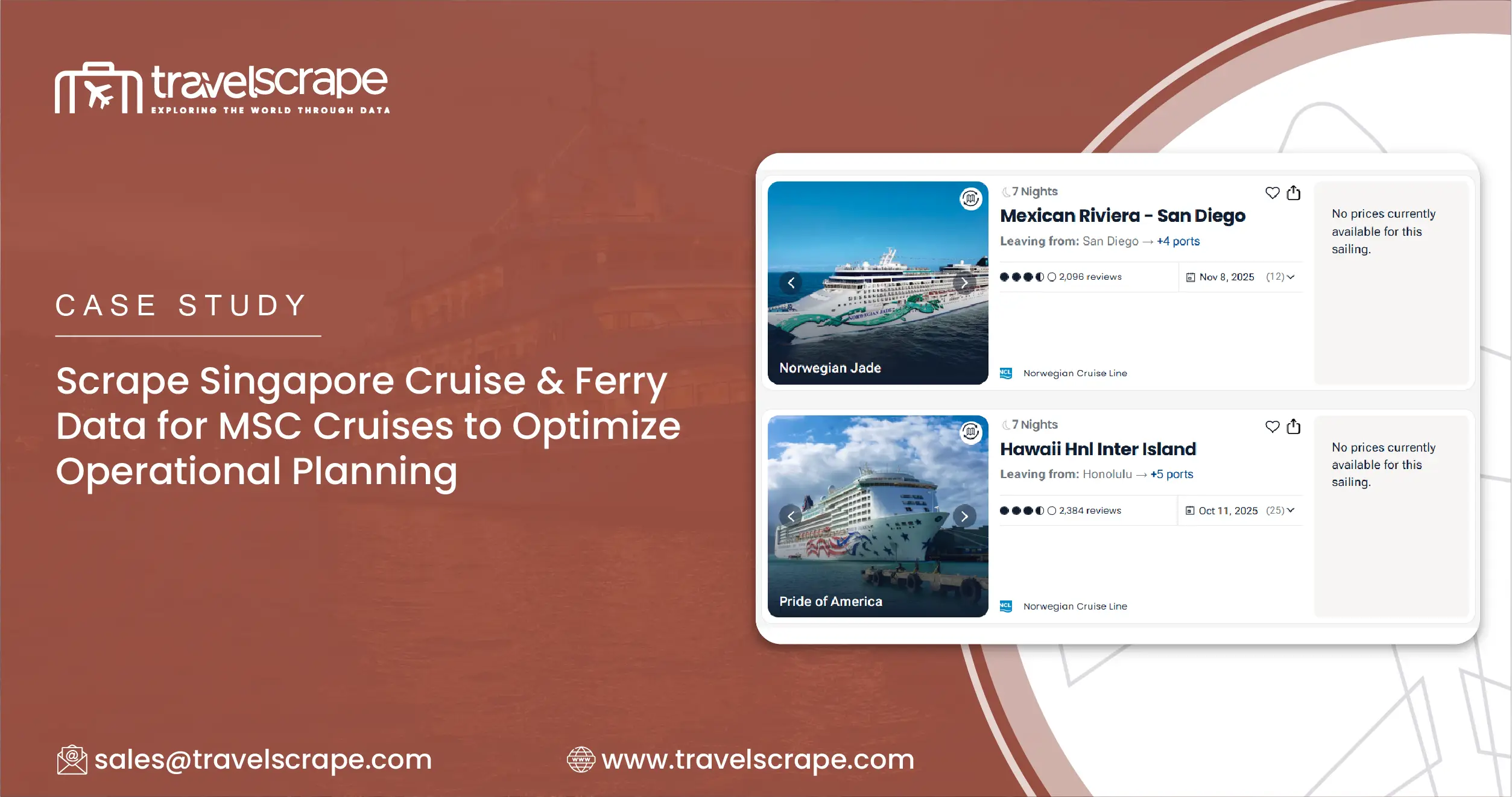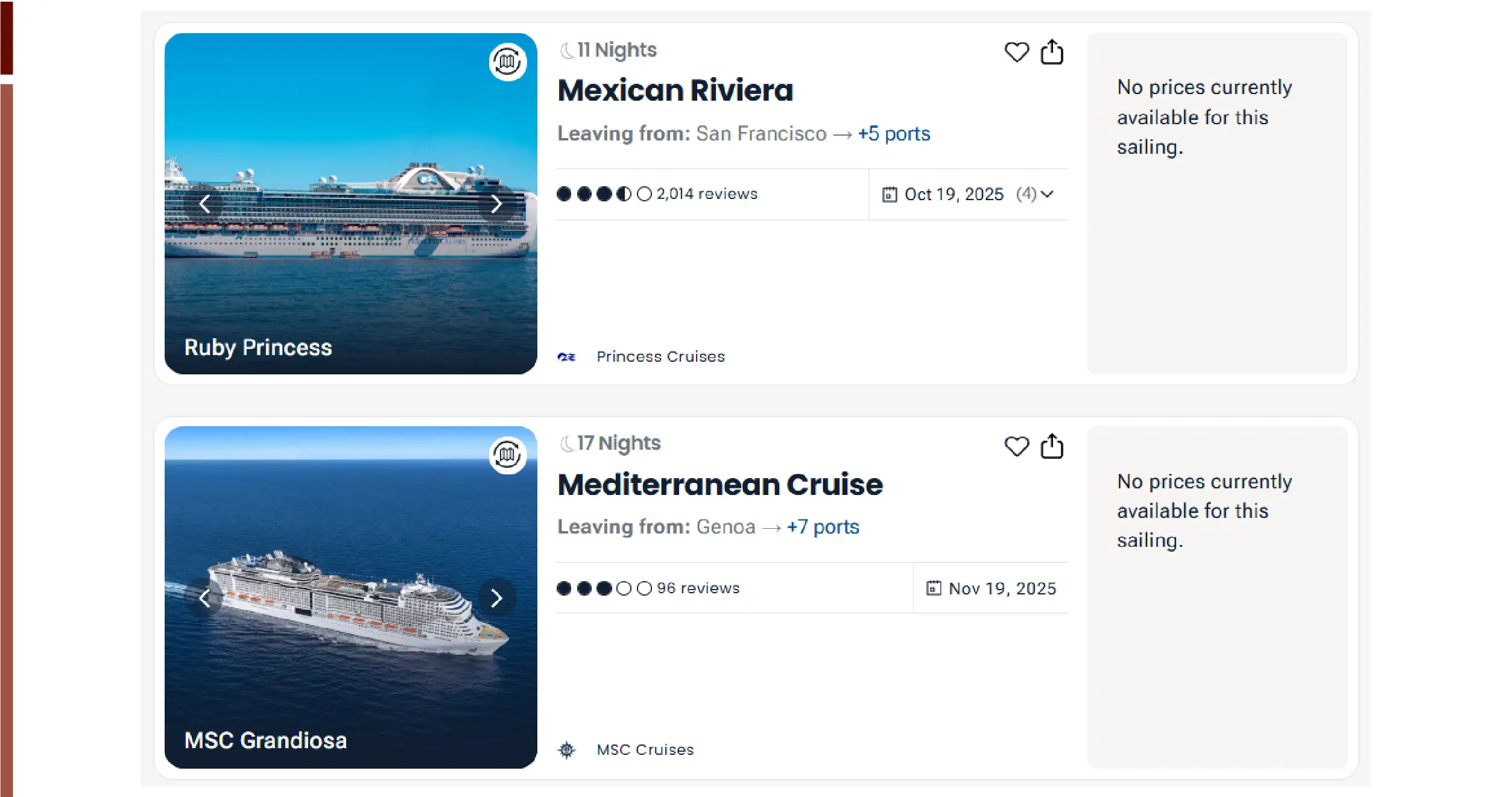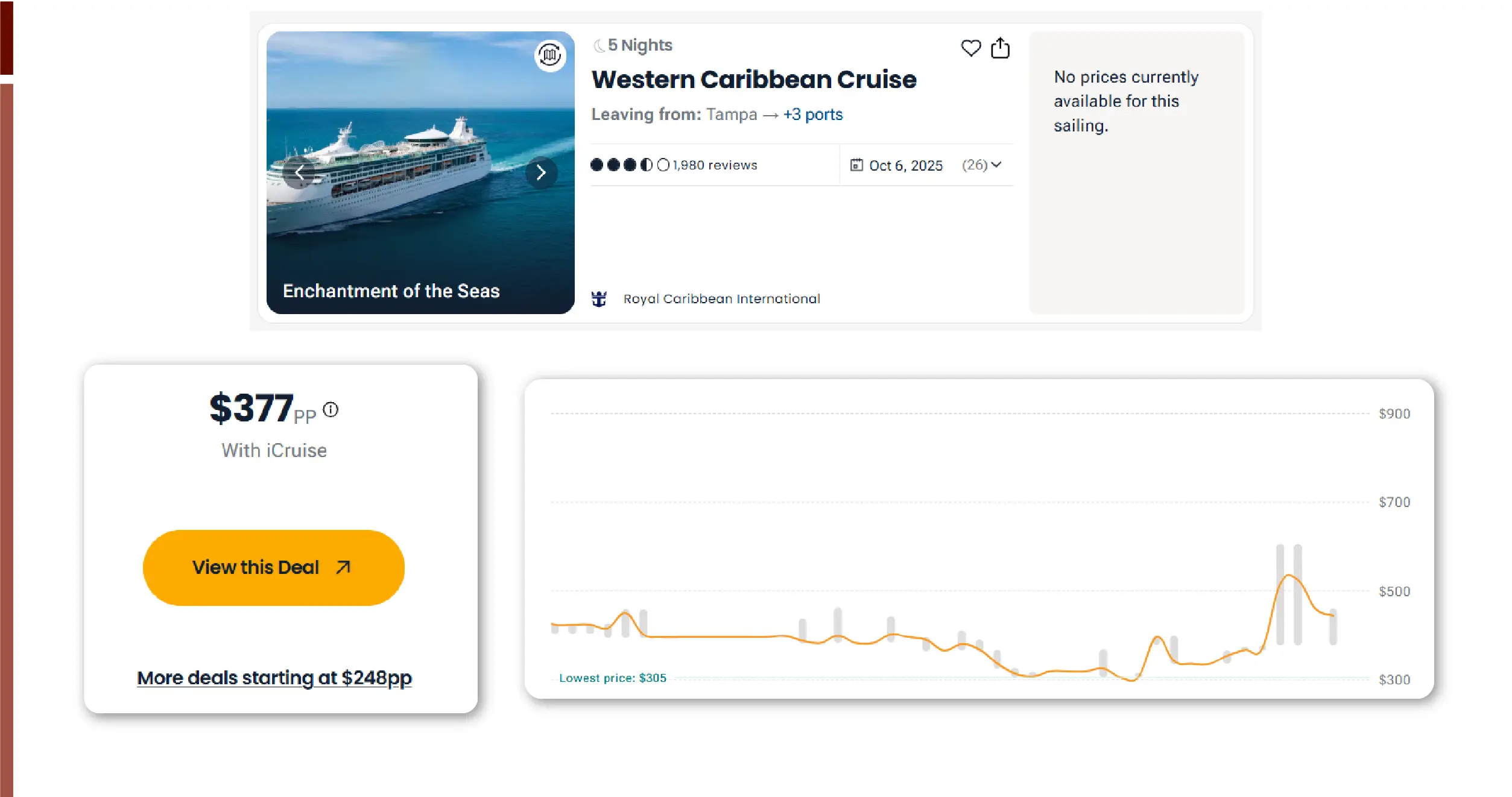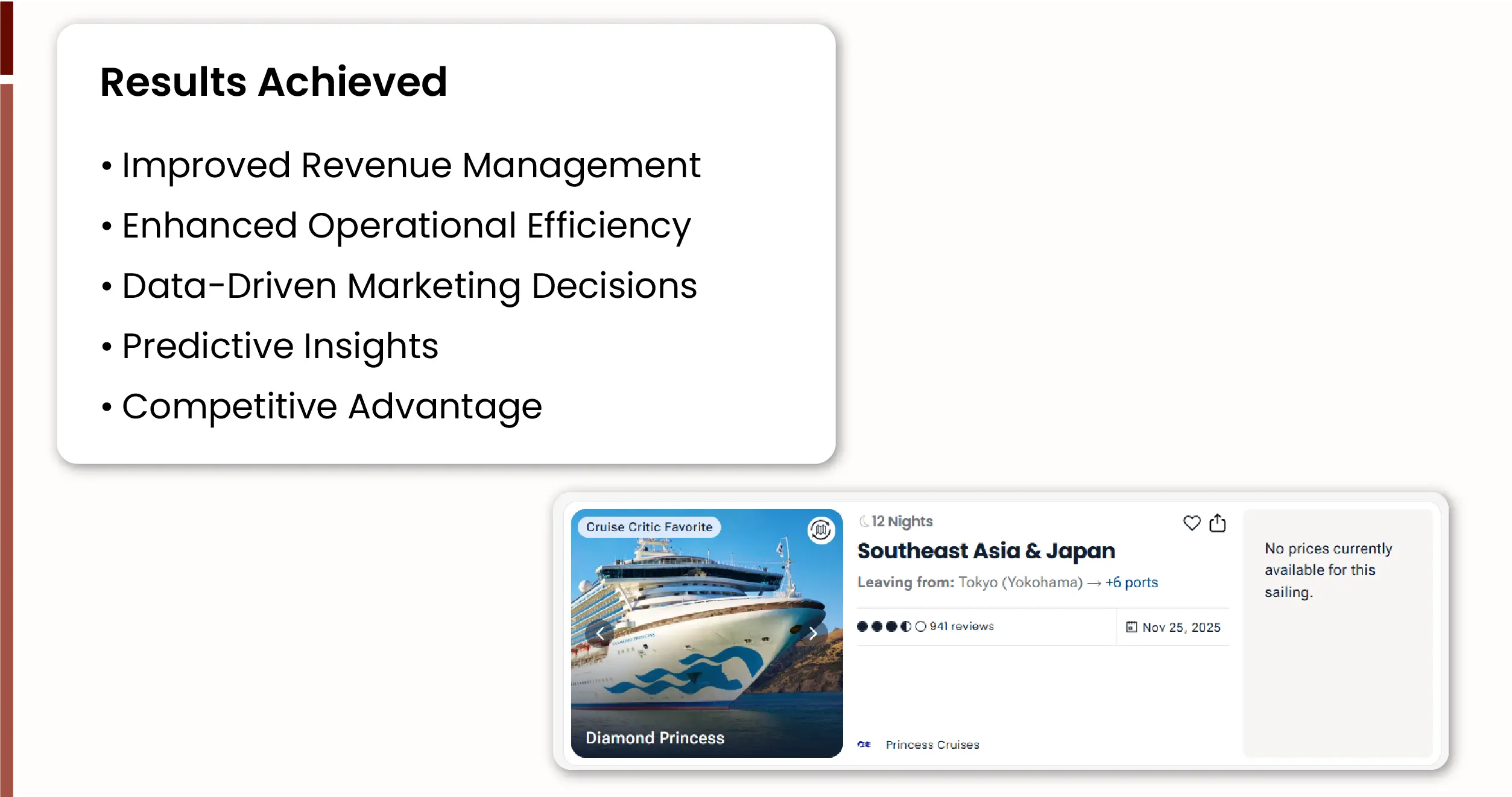Scrape Singapore Cruise & Ferry Data for MSC Cruises to Optimize Operational Planning

Introduction
In a recent project, we were able to Scrape Singapore Cruise & Ferry Data for MSC Cruises to provide comprehensive insights into cruise schedules, pricing, and promotions. By leveraging advanced web scraping and API integration techniques, we captured real-time availability and fare fluctuations across multiple cruise routes in Singapore. This allowed stakeholders to monitor seasonal trends, high-demand periods, and competitor pricing strategies efficiently.
Using MSC Cruises Cruise And Ferries Data Scraping , we consolidated historical and current datasets into structured formats, enabling predictive analysis for occupancy and revenue management. The data also included detailed information on cabin types, onboard offers, and seasonal discounts, supporting strategic marketing campaigns and operational planning.
Furthermore, we were able to Extract ferry and cruise deals for MSC Cruises Singapore, providing a clear view of promotional campaigns and customer engagement patterns. This case study demonstrates how targeted data scraping empowers cruise operators and travel agencies with actionable intelligence for better decision-making and competitive advantage.
Our Client
Our client, MSC Cruises, is one of the leading global cruise operators, known for delivering premium cruise experiences across multiple regions. To strengthen their presence in Singapore, they required in-depth insights into passenger demand, booking behavior, and route popularity. By utilizing the MSC Cruises Itineraries Dataset , they gained visibility into cruise schedules, port stops, and seasonal travel trends specific to the Singapore market.
Challenges in the Travel Industry

1. Managing Dynamic Fare Structures
Rapid changes in cruise pricing created difficulty in forecasting revenue.
Leveraging Cruise Pricing Intelligence allowed the client to capture fluctuations
and adjust pricing strategies in near real-time across multiple routes.
2. Handling Massive Data Streams
The client struggled with enormous datasets from cruise schedules, bookings, and
occupancy. Scraping MSC Cruises cruise and ferry data trend analysis streamlined
data collection, enabling structured insights for decision-making.
3. Tracking Promotional Campaigns
Frequent promotions and discounts needed constant monitoring. Scraping MSC Cruises
promotions and discounts in Singapore helped identify which campaigns drove
bookings, ensuring optimized marketing strategies.
4. Optimizing High-Demand Routes
Identifying peak travel routes and underutilized itineraries was complex. Scraping
MSC Cruises Singapore routes to optimize travel planning provided visibility for
smarter scheduling and resource allocation.
5. Real-Time Booking Visibility
Cancellations, last-minute bookings, and occupancy shifts required immediate
attention. Cruise & Ferry Data Scraping ensured the client maintained accurate,
real-time operational and market intelligence.
Our Approach

The client faced significant hurdles in managing dynamic pricing, monitoring promotions, handling large datasets, optimizing high-demand routes, and accessing real-time booking insights. These challenges required advanced data collection, analysis, and strategic planning to ensure operational efficiency and competitive advantage.
1. Data Collection
We systematically gathered information from multiple travel platforms, including schedules, availability, and pricing, ensuring comprehensive coverage of all relevant routes, including those within the Global Cruise Route Dataset.
2. Automation and Integration
Advanced automation tools were employed to streamline data extraction and integrate
it into centralized databases, enabling efficient handling of large volumes of
structured and unstructured data.
3. Data Cleaning and Standardization
Collected data was processed to remove inconsistencies, duplicates, and errors,
standardizing formats for easier analysis and ensuring reliability across all
datasets.
4. Analytical Modeling
We applied statistical and predictive models to identify trends, patterns, and peak
demand periods, supporting data-driven decision-making for route planning and
operational efficiency.
5. Visualization and Reporting
Insights were presented through dashboards and reports with clear visuals, enabling
stakeholders to monitor trends, track performance, and make strategic decisions
effectively.
Results Achieved

1. Improved Revenue Management
Real-time insights enabled optimized pricing strategies, resulting in increased
revenue and more effective use of high-demand cruise and ferry routes.
2. Enhanced Operational Efficiency
Resource allocation and scheduling improved significantly, reducing overbooking
risks and ensuring smooth operations across all monitored routes.
3. Data-Driven Marketing Decisions
The client could target promotions and campaigns more effectively, boosting booking
conversions and overall passenger engagement.
4. Predictive Insight
Trend analysis allowed accurate forecasting of peak travel periods, enabling better
planning for staffing, inventory, and route management.
5. Competitive Advantage
Access to comprehensive, up-to-date data helped the client monitor competitors,
respond to market changes quickly, and maintain a strong market position.
Client's Testimonial
"Working with the team has transformed how we manage our cruise operations in Singapore. Their expertise in data collection and analysis provided us with real-time insights into booking trends, route demand, and promotional effectiveness. The actionable intelligence enabled us to optimize pricing, improve resource allocation, and make informed marketing decisions. Their professional approach and timely delivery ensured our operational efficiency improved significantly while maintaining a competitive edge in the market. We are extremely satisfied with the results and the strategic value they brought to our business."
Final Outcome
In conclusion, leveraging travel app data scraping for state-wise hotel availability and pricing has proven essential for informed decision-making and strategic planning. Scrape Aggregated Travel Deals to provide operators with insights derived from real-time and historical data, enabling optimized pricing, accurate peak demand forecasts, and efficient resource allocation. By analyzing trends across different states, businesses can Scrape Travel Website Data to design targeted promotions, gain a competitive edge, enhance customer experience, and improve overall revenue management. The integration of predictive analytics with comprehensive datasets allows stakeholders to Scrape Travel Mobile App insights, respond proactively to market fluctuations, and make data-driven strategies central to success in the dynamic hospitality and travel industry.